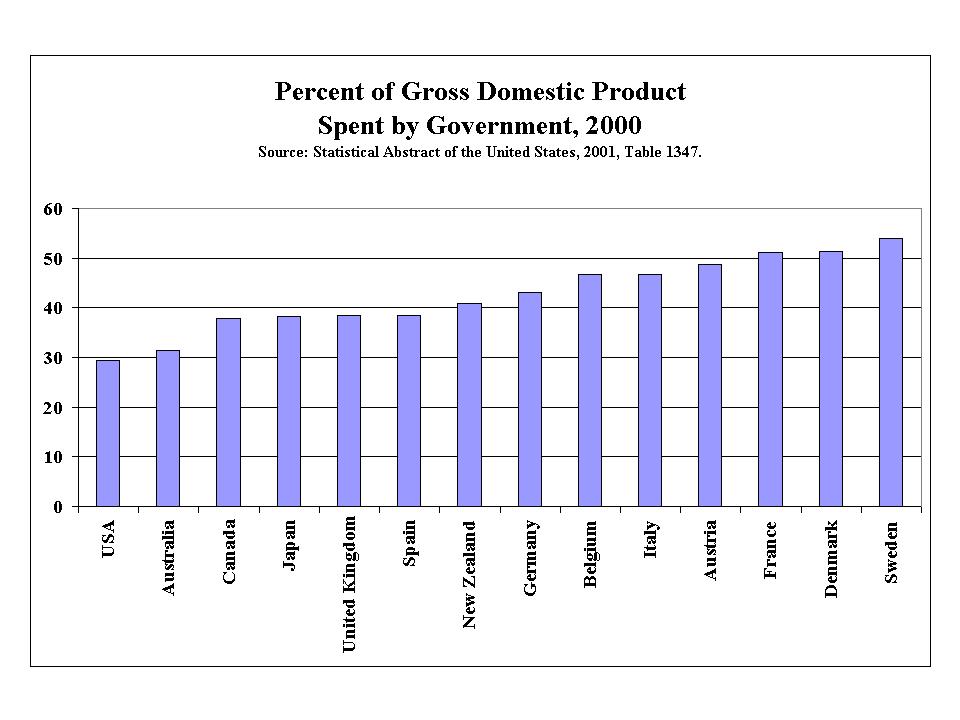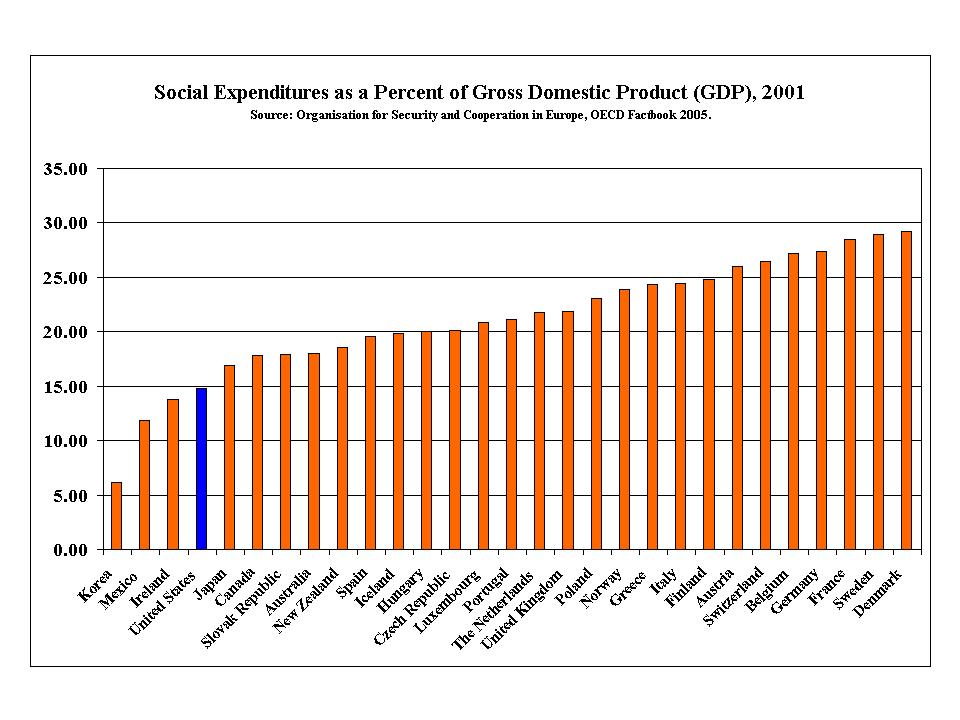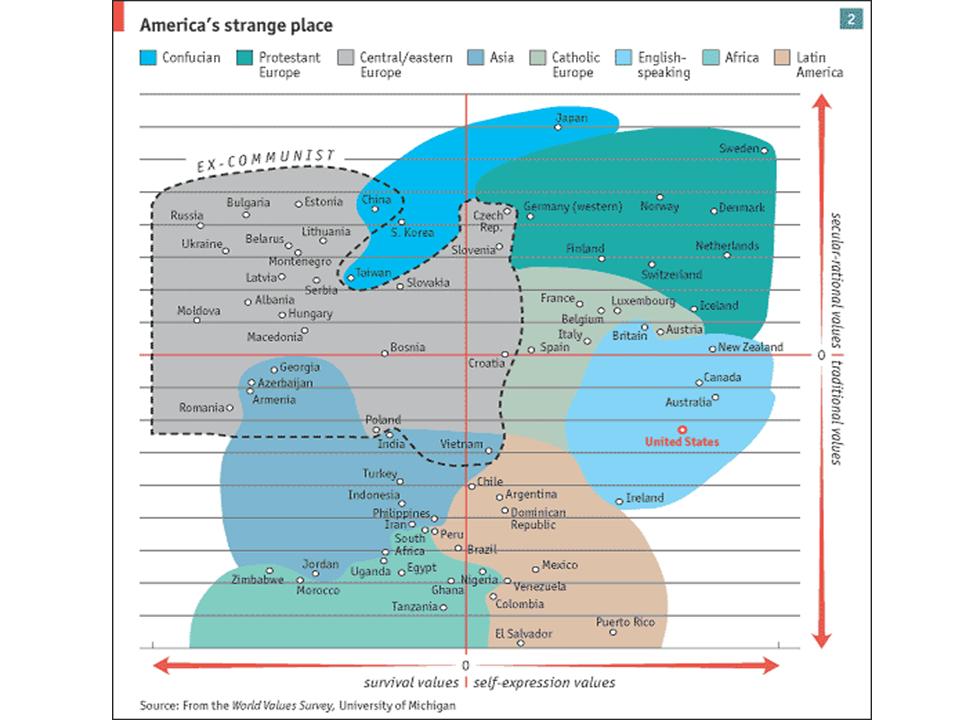The responses to my blog on FDR and Obama prompts me to reconsider a question famously asked by the political theorist Louis Hartz in his classic work The Liberal Tradition in America: Why no socialism in the United States? Hartz’ much debated answer, greatly simplified here, is that because American political development skipped a feudal period, our political culture lacks any sense of class consciousness. Most of us consider ourselves to be the members of the broad, undefined middle class. (As evidence of this, I always ask students in my introductory American politics course how many come from middle class backgrounds. Invariably every hand goes up.) As a result, our politics is dominated by an almost irrational commitment to Lockean liberalism, with its emphasis on individual rights and limited government. Hartz, like many political scientists, eventually went mad. But his question remains relevant today, as the response to my last blog suggests.
Some of you will recall the fervent efforts by conservatives during the 2008 presidential campaign to unearth Obama’s “socialist” leanings (see here), and Obama’s equally fervent efforts to deny any ideological kinship with socialism. More recently, of course, critics of the proposal to rescue the banking industry by having the government buy up bank assets argue that it is a form of socialism – a charge proponents of the bank rescue plan deny. These exchanges are a reminder that, unlike in most of the world, socialism remains a dirty word in American politics.
To explain the American aversion to socialism, political scientists usually point to two factors. One is the Hartzian notion that American’s commitment to liberalism – particularly individual rights – discourages the development of a strong central state. A second explanation, however, points to American political institutions, particularly federalism and the sharing of powers at the national level between two chambers of Congress and the president. American federalism, in which authority is shared concurrently between states and the national government, made the development of a strong working class party rooted in national labor unions more difficult because political parties developed and are organized primarily at the state level. This makes coordinating political action more difficult. So some states develop progressive parties, but others do not. And our system of shared powers, with a legislative body based on local representation, provides many points of access for intense minorities to intervene in the legislative process. In particular, this allows businesses with a vested economic interest in limited government to block efforts to pass legislation increasing the size of the social welfare state. Think back to the effort by small business and insurance companies to block health care reform during the Clinton presidency.
More broadly, this American aversion to socialism makes us an exception in the world. Consider the following two charts. First, note that as a proportion of GDP, we spend much less than many nations on government programs.
And we spend much less on social welfare programs.
Our political culture is also exceptional – we allow for much more individual expression, but we also retain a strong emphasis on traditional values, such as religion. This makes us an outlier among most nations of the world, as the following chart suggests. Notice the location of the United States as a function of expressive and traditional values:
All this is a long prelude to the issue raised by Liz in her response to my discussion of the Obama/FDR comparison. She suggests that Obama might yet be an FDR-like “transformative” president if he is able to persuade Congress to pass social welfare policies that are now common in many industrialized nations. I confess that, given the dire economic circumstances facing the country now, the focus of my critique of the FDR/Obama comparison was on the creation of jobs and the revitalization of the American economy. But perhaps my focus is misplaced. Perhaps, as Liz suggests, Obama may yet push the Democratic Congress to expand the social welfare state through the adoption of policies such as paid parental leave, a government-run, single-payer health care system, nationalized banking system and other statist policies. If so, he might yet go down in history as one of the greater presidents. In a later post I will give my thoughts on Liz’ suggestion, but I am curious to hear from you first.
What do you think? Will Obama, working through the Democratically-controlled Congress, succeed in expanding the social welfare state? And, if so, will he be the next FDR?




I wanted to try to respond to this post as well as the previous one.
It seems to me that Obama has to contend with the dual legacies of FDR and Reagan. FDR raised the public’s expectation that the government would provide a safety net and manage the nation’s economy, while Reagan made popular the notion that big government was the problem and that cutting spending and lowering taxes were the way forward.
It could be argued that the big divide over the stimulus package was in many respects the clash of these two competing visions of the government’s role in the economy and in people’s lives in general. Obama, I think, has recognized that this is the case – recall his line in the inaugural address about not asking whether government is too big or too small but whether it works. If Obama is going to redefine American politics to the same extent that either FDR or Reagan did, it has to be the new age of “smart” government that he has preached about. The Audacity of Hope and many of Obama’s campaign speeches are filled with promises of moving beyond the stale arguments of the past and trying to create a pragmatic consensus based on the many things that both conservatives and liberals have in common. For this reason, I do not expect Obama to usher in a new era of socialism in the US. Individual responsibility is one of his expressed beliefs. While he has hinted at increased government regulation in many areas, Obama is not about to expand government social works and welfare beyond its current boundaries. Instead, he is poised to try to navigate a path somewhere between FDR’s New Deal and Reaganomics. The trouble is that it is very difficult to define an agenda that assumes a philosophy of government in between traditional liberal and conservative lines – just ask Clinton!
Nevertheless, the argument can be made that some of the biggest issues the federal government will face in the next 10-20 years will require new approaches from both sides of the aisle. Our national debt will soon become unsustainable and the looming surge in Baby Boomer retirees will force changes to the social security benefits that FDR pioneered. Democrats and Republicans will soon have to deal with the hard decisions that have been put off for too long. Certain benefits will almost certainly go out the window; likewise, raising some taxes will soon become unavoidable. This poses problems for Democrats and Republicans alike. It may be difficult, however, for Obama to forge a new consensus about the role of American government until a severe crisis hits (Dickinson’s historical perspective on this recession is a nice reminder that things are bad, but they aren’t THAT bad). Thus, we are back to one of Professor Dickinson’s favorite pearls of wisdom – Presidents don’t dictate events; events dictate Presidencies.
In anticipation of the next post, though, I wonder whether all of this hoopla about bipartisanship is a little overdone. Reagan is a model for governing in a bipartisan manner because, guess what? The Democrats controlled the House when he was President! Bipartisanship was the modus operandi because it was necessary to get things done. (Notably, it also took Reagan some time to accomplish pass his version of an economic stimulus bill, and he was helped by the wave of sympathy that followed from an assassination attempt.) I wonder whether we have yet to realize that the way in which the stimulus bill passed embodies a different paradigm – one in which the real power is held by those few moderate Senators who can prevent a filibuster. Perhaps this is why the Senate Republicans are pouring resources into Norm Coleman’s legal efforts in Minnesota. If Senate Democrats only need one extra vote to pass a measure, then there is even less opportunity for Republican influence. Senators Collins and Snowe aren’t up for election for a while, and I’m not sure how effective Republican robo-calls will be in a moderate, New England state. Especially when Rahm Emmanuel has Collins and Snowe’s personal lines on his speed-dial.
Anyhow, I’m interested in learning more about Reagan, but I’m also wondering whether Obama might benefit the most from looking at the record of those Presidents who entered office with a united government (Clinton, Carter, Kennedy, FDR). Clinton’s first two years in power seem to be full of warnings about the dangers of mismanagement and unfocused leadership, perhaps even the problem of over-reaching.
In many ways, the extent of Obama’s mandate has yet to be determined, partly because the 2010 elections will dictate how “bipartisan” or “postpartisan” Obama will have to be. We also have yet to see how the economy performs in the next few years and how that affects public perception of Congress and the President. In short, there’s still a lot that’s up in the air. Still, I would tend to err on the side of treating the stimulus package as a major victory for the President, despite his failure to attract many Republican votes. The major provisions of the bill were very similar to the President’s initial wishes, and it was passed in his original time frame. I also remain unconvinced that the Republican’s unanimous opposition is a politically savvy move. If Frank Rich is a transparent hypocrite, then so are all of the Congressional Republicans who have suddenly discovered a newfound appreciation for fiscal conservatism! But I digress…
“the whole society seems to have melted into a middle class”- Alexis de Tocqueville.
I think that this quote from one of the most prescient historians of American history sums up Professor Dickinson’s remark that the reason why socialism will never proliferate in America is because everyone considers themselves part of the middle class.
Matt, thank you so much for your great analysis and commentary on this blog. While I don’t always agree with your conclusions, you have greatly enhanced the critical thinking skills of many of us.
I have two requests however:
1. Could you please save your images as plain JPG image files?
2. Could you please use HTML tables for your data charts?
These changes would make your wonderfully detailed postings much easier to read. It is frustrating to download and open the charts in Word, and it makes it harder to follow your writing as readers need to jump back and fourth between the browser and three Word documents to understand how the charts relate to your text. As well, the tabular data you post often gets aligned in such a way that it is hard to figure out which statistics are in which column.
After saving the chart as a JPG image, use the “Add Media” button to insert the image into the post such that it shows up embedded in the text.
Here are instructions on how to do HTML tables: http://www.w3schools.com/html/html_tables.asp
If you have other questions about formatting, I’m sure that the Helpdesk can help you or direct you to someone who can.
Thanks again!
Friend,
thanks for the kinds words and, more importantly, for the advice on embedding word documents. We’ll see what we can do about implementing your suggestions. Readers have made a number of very good suggestions about adding some features to this site, including some feeds from other sources regarding polling data, legislative record, etc. If I can ever carve out some time to sit down with someone with the expertise for doing this, I’ll try to take people up on their suggestions. But I do appreciate the input very much.